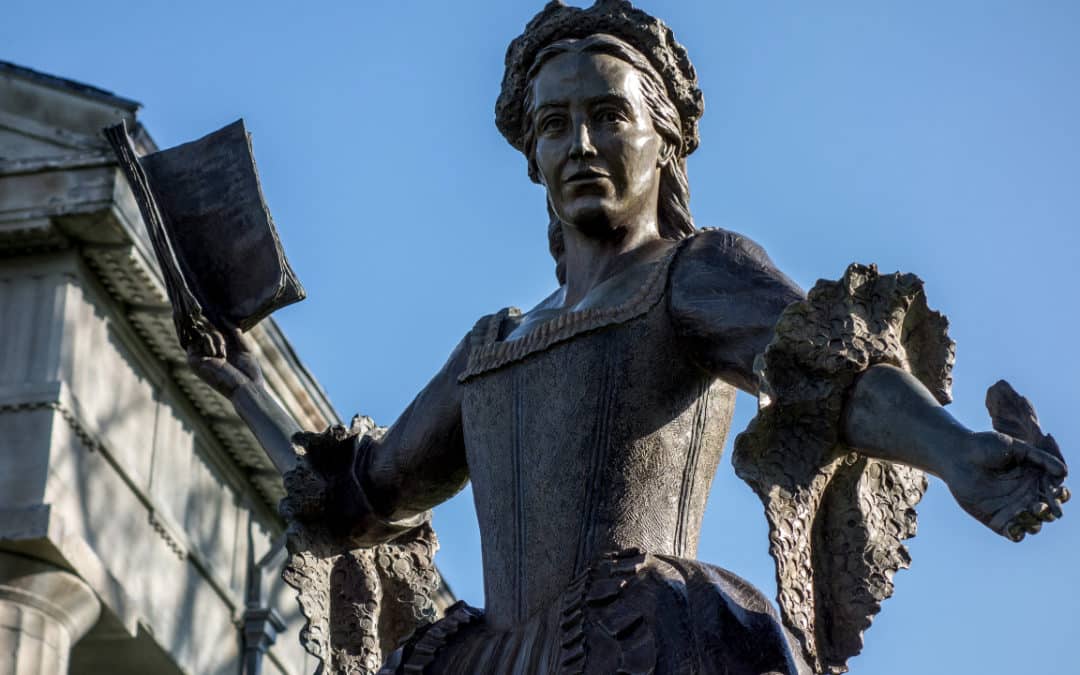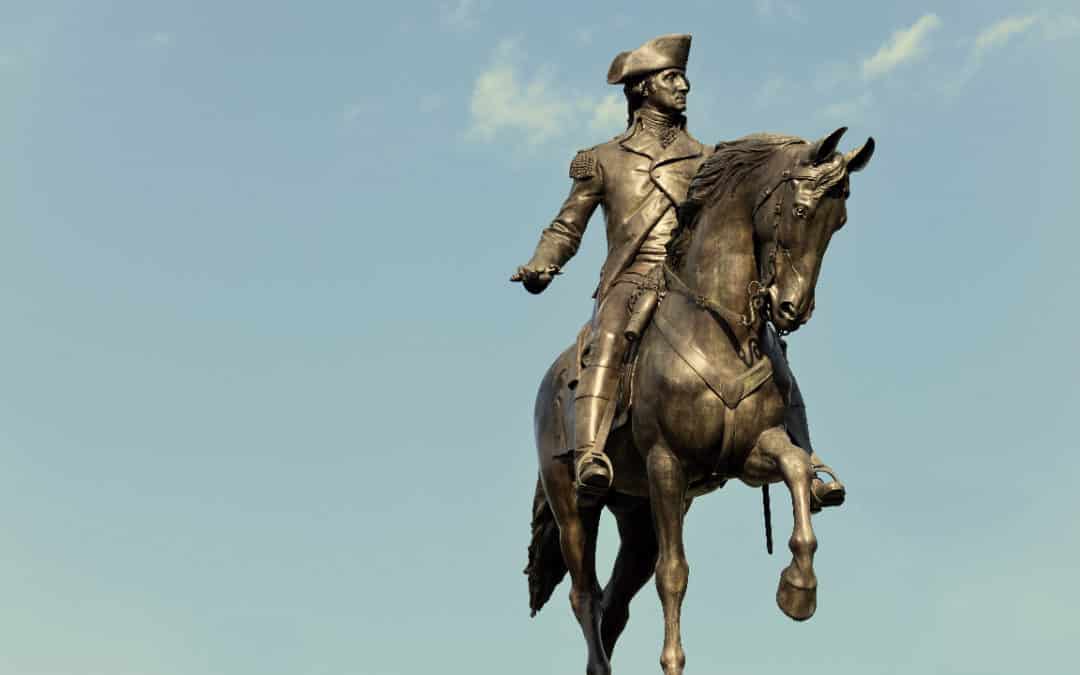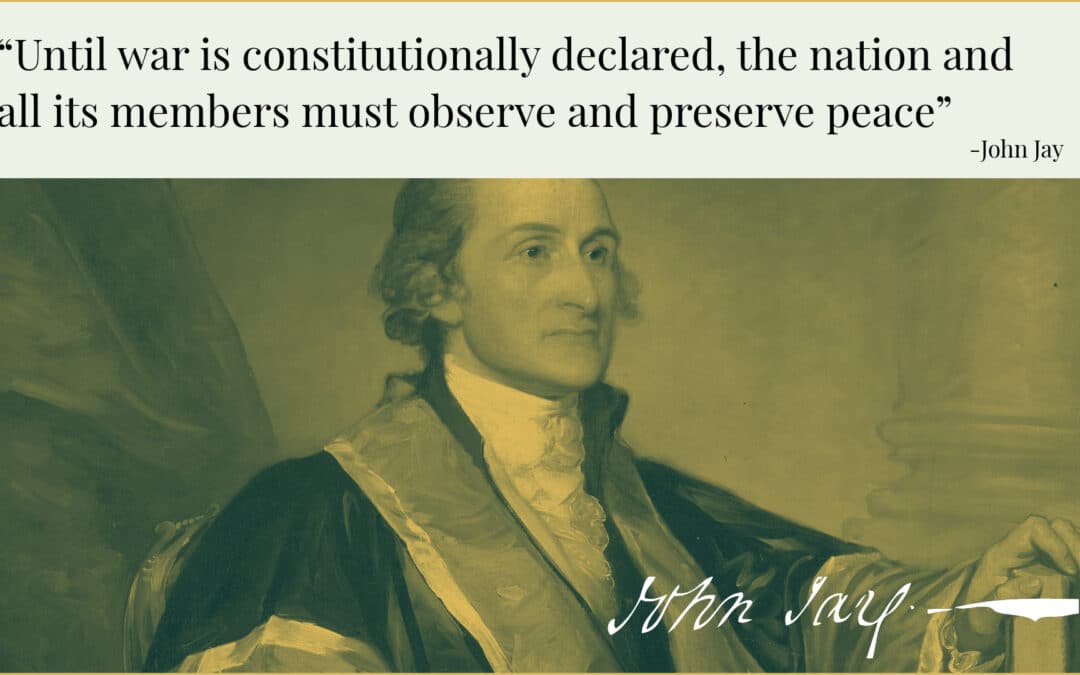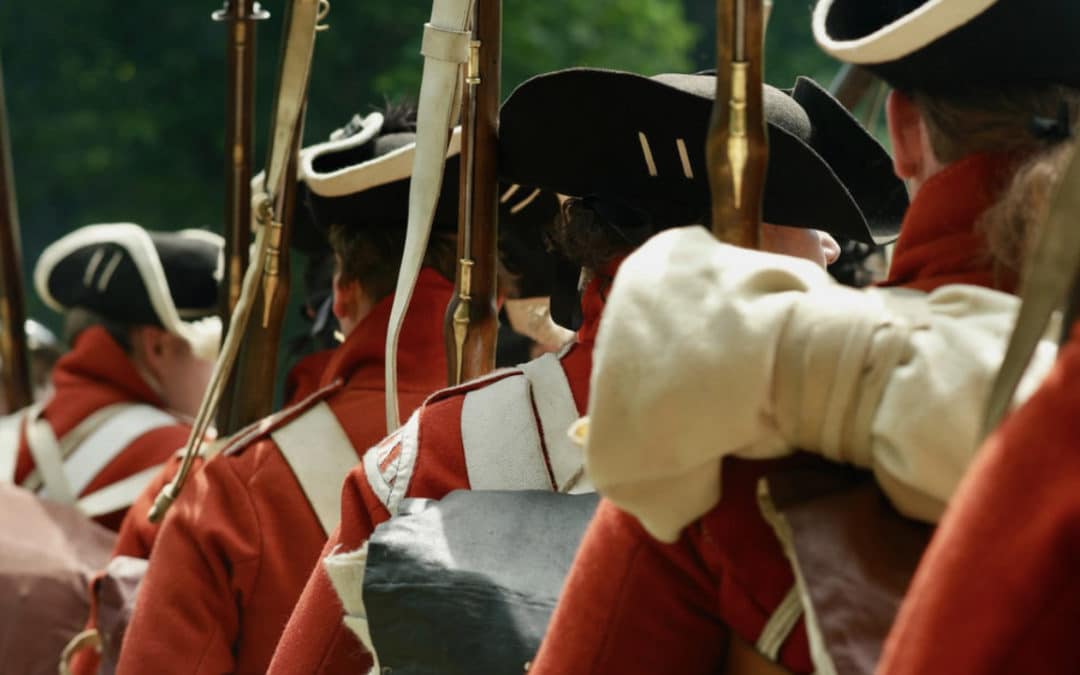


Mercy Otis Warren: Constitution Would “Terminate in the Most Uncontrolled Despotism”
Mercy Otis Warren came down firmly opposed to ratification of the Constitution, and her anonymously written pamphlet titled “Observations on the new Constitution, and on the Federal and State Conventions” was highly influential during the ratification debates....
Deciphering the Commander-in-Chief Clause
The Constitution designates the president as the commander in chief of the “Army and Navy of the United States, and of the Militia of the several States, when called into the actual Service of the United States.” A common view is that this gives the president...
What The Constitution Means By “Declare War”
In the 2000 film Thirteen Days chronicling the Cuban Missile Crisis, John F. Kennedy tells General Taylor, “I’m the president of the United States, and I decide when we go to war.” That’s how presidents have done things for decades. The problem is, that’s not...
